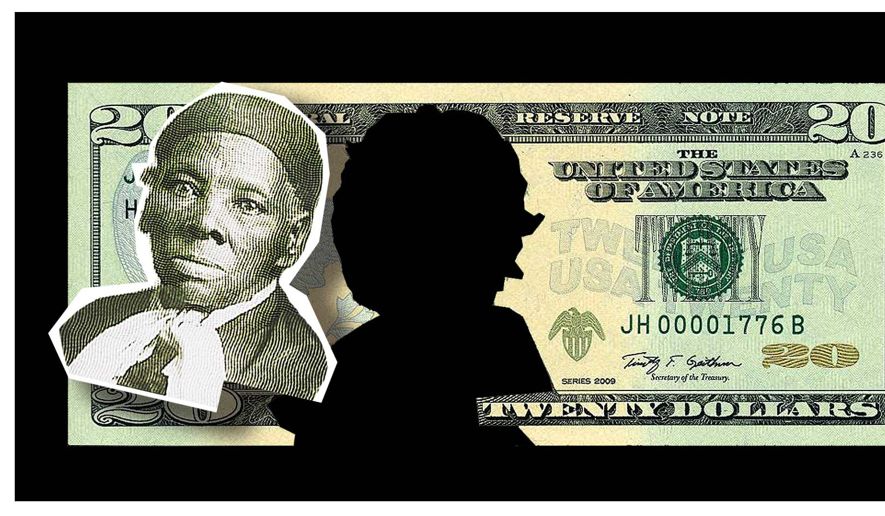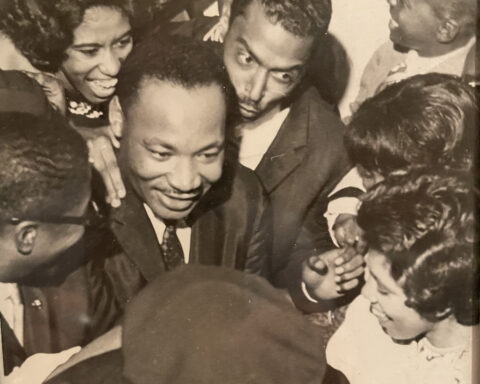Martin Luther King once said “the arc of moral universe is long, but it bends towards justice.” And now, it looks like that arc is finally bending towards Underground Railroad conductor Harriet Tubman, and against seventh U.S. president Andrew Jackson. In 2020 she’ll be on the front of the $20 bill and he’s been reassigned to the back of the bill.
Harriet Tubman was born into slavery in Dorchester County, Maryland, and escaped in 1849. After escaping she joined forces with the Underground Railroad, a system of secret paths and shelters to help escaped slaves make it to Free states. She led over 300 slaves to freedom in one decade earning her the title of “the Moses of her people.” She also served as a nurse, cook, laundress, spy, and scout during the Civil War.
Tubman and Jackson lived on opposite sides of the American experience. Jackson was a lawyer and a landowner. He became known as a national war hero after defeating the British in New Orleans during the War of 1812. He was later elected as seventh president of the United States in 1828, and is also the founder of the Democratic Party.
TREASURY SECRETARY ANNOUNCES CHANGE
On Wednesday, April 20, U.S. Treasury Secretary Jacob J. Lew announced the change that Tubman will appear on the front of the bill, while Jackson will cover the back. She will be the first women in more than a century to cover a paper note, and also the first African-American in history.
The last time a woman was on a paper note was in the late 1800s, when first lady Martha Washington appeared on the $1 silver certificate. Tubman, however, will not be the first woman to appear on the $20 bill.
Pocahontas, known for her involvement with English colonial settlement Jamestown, Virginia, covered the bill from 1865-1869 after she saved the life of Englishman John Smith, by placing her head upon his during his execution.
The promotion of Tubman and demotion of Jackson has been marked by considerable controversy and discussion, especially on social media. Many African-Americans have tweeted about how whites will ask to not be paid in $20 bills.
There was also a photo on Instagram, depicting the KKK with crying faces, with the caption “When you gotta pay your KKK dues with money that got a Black Revolutionaries face on it”, to describe the image. It was also said that Tubman’s face is so stern, it will make them think twice about their purchases.
DEBATE OVER TUBMAN RAGES ON
Even presidential candidates have been putting in their two cents. For instance, Republican primary candidate Donald Trump shared his stance, saying Jackson should be left alone on the bill, and Tubman should have her own, suggesting the $2 bill.
Trump isn’t alone in wanting the $20 bill to remain the same.
For very different reasons, Andrea Williams, a professor at Ohio State, is critical of the decision. She told the LA Times that putting Tubman on the $20 bill disrespects her by associating her with the capitalist system, the very system that first promoted the enslavement of Africans. “The irony of her image being exchanged in return for commodities in the future seems to recall the way that actual slaves’ bodies were serving as currencies of exchange.”
Some NCCU students also disagreed with decision to put Tubman on the bill, for varying reasons. “I am not for it,” said mass communications senior Jaziel Brown, “the government thinks they are doing a favor for us, and they will expect something in return. This is a devious act, with a higher agenda we don’t know about.”
———————————–
“We have this women [Tubman] who in many ways is just the complete opposite of Jackson, and it speaks volumes that we can recognize Tubman as this great American hero and image of what it means to be American.””
Brenda Stevenson, African-American studies professor
University of California Los Angeles
———————————–
Tia Mitchell, mass communication junior, said she admires Tubman, but thinks that it’s not addressing the real issues African Americans face. “If the government really wanted to do something about it, they need to do more than just put her on the $20 bill.”
But human rights activists are thrilled with the decision, especially since Andrew Jackson’s presidency, from 1829-1837, had the darkest legacy of an aggressive genocide of Native Americans. His Indian removal policy for the Cherokee nation to give up its land east of the Mississippi River and to migrate to an area in present-day Oklahoma.
To this day the Cherokee called this journey the “Trail of Tears,” because of its devastating effects. They faced hunger, disease, and exhaustion on the forced march to the new land. Over 4,000 out of 15,000 of the Cherokee migrants died.
Many have speculated why Jackson’s victories in the War of 1812 have outshined his genocidal cruelty toward Native Americans and why he was ever put on the $20 bill at all.
“Andrew Jackson is what we used to think of as a great American hero.
He stood for the white, male political and economic elite with great military honor associated with him,” said Brenda Stevenson, a history and African-American studies professor at the University of California Los Angeles, speaking to the LA Times.
“We have this women [Tubman] who in many ways is just the complete opposite of Jackson, and it speaks volumes that we can recognize Tubman as this great American hero and image of what it means to be American.”
Theatre freshman Daniel Hargrove supports the change. “It is a good thing to have a prominent black figure on U.S. currency, especially considering the controversy of Jackson’s history.” But some students see that fact that Jackson remains on the back of the bill as a slight.
“They are half-assing it,” said Melquan Ganzy, a mass communication senior. “Slaves built America so this is long overdue. Good for Harriet, but remove Jackson completely.”
Phil Goff, a critic and president of the center for Policing Equity Thinktank, captured some of the intensity of the controversy saying to the LA Times, “America is terrible and it is amazing. Money is both of those things all the time.”
The $20 bill is not the only bill receiving a makeover. The $5 and $10 bills are scheduled to release with new images, also in 2020. Just in time for the 100th anniversary of the passage of the 19th amendment, which gave women the right to vote. The last time a new portrait appeared on U.S. currency was between 1914 and 1928.


















